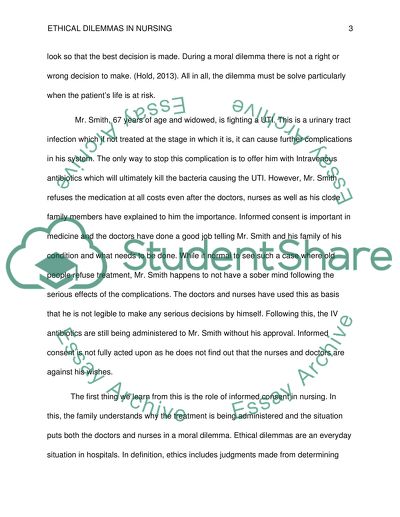Cite this document
(“Ethical Dilemmas in Nursing Essay Example | Topics and Well Written Essays - 3000 words”, n.d.)
Retrieved from https://studentshare.org/nursing/1641767-ethical-dilemmas-in-nursing
Retrieved from https://studentshare.org/nursing/1641767-ethical-dilemmas-in-nursing
(Ethical Dilemmas in Nursing Essay Example | Topics and Well Written Essays - 3000 Words)
https://studentshare.org/nursing/1641767-ethical-dilemmas-in-nursing.
https://studentshare.org/nursing/1641767-ethical-dilemmas-in-nursing.
“Ethical Dilemmas in Nursing Essay Example | Topics and Well Written Essays - 3000 Words”, n.d. https://studentshare.org/nursing/1641767-ethical-dilemmas-in-nursing.


